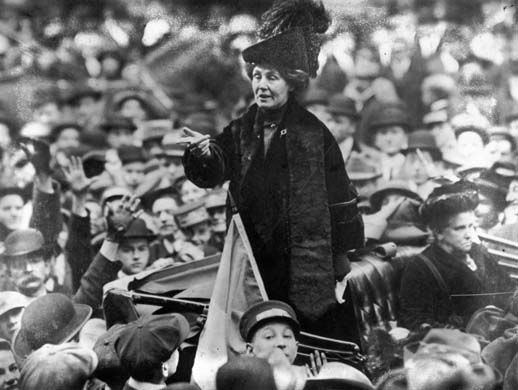Memories of Emmeline Pankhurst
As an important leader of the British suffragette movement, the memories of Emmeline Pankhurst offer an invaluable insight into the fight for women’s rights at the beginning of the 20th century.
With her two daughters, Emmeline launched the Women’s Social and Political Union (WSPU), an organisation that often used a military approach to draw attention to the cause of women’s rights.
Many people, including women, frowned upon the militant protests of the Suffragettes, which included damage to property and hunger strikes. However, Emmeline’s dedication to the cause and determination as a leader are undeniable.

In her autobiography, My Own Story, Emmeline Pankhurst recounts her experience at the helm of the suffragette movement:
Speaking about her childhood, Emmeline Pankhurst wrote:
“My parents, especially my father, discussed the question of my brothers’ education as a matter of real importance. My education and that of my sister were scarcely discussed at all.
One night when he thought I slept, my father bent over me. I heard him say, somewhat sadly, ‘What a pity she wasn’t born a lad.’
It was made quite clear that men considered themselves superior to women and that women apparently acquiesced in that belief.”
She also wrote about conditions in prison:
“I was imprisoned for the first time in Holloway in 1908 after an arrest for marching on Parliament Square.
I lay all night suffering with cold, gasping for air, aching with fatigue, and painfully wide awake.
No letters and no visitors were allowed for the first month.
The prisoner was kept in solitary confinement in a narrow, dimly lit cell, 23 hours out of the 24. After two days I was ordered to the hospital.
A woman in the cell next mine was moaning in long, sobbing breaths of mortal pain. The truth flashed over me, turning me sick, as I realised that a life was coming into being.
I shall never forget that night, nor what I suffered with the birthpangs of that woman.”
MLA Citation/Reference
"Memories of Emmeline Pankhurst". HistoryLearning.com. 2026. Web.
